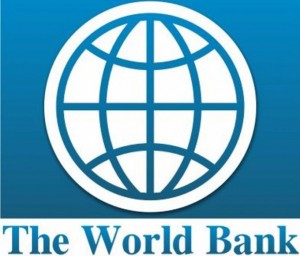Low commodity prices will continue to negatively impact growth in Africa – World Bank
 The World Bank says the downturn in commodity prices which has adversely impacted growth in Africa, is likely to continue for long, making it imperative for the rationalization of public expenditure – especially the wage bill – and prudent public financial management and public investment.
The World Bank says the downturn in commodity prices which has adversely impacted growth in Africa, is likely to continue for long, making it imperative for the rationalization of public expenditure – especially the wage bill – and prudent public financial management and public investment.
According to Africa’s Pulse, a bi-annual report of the World Bank on Africa’s economic outlook, the low commodity prices which hit hard on oil exporters such as Nigeria, Congo and Equatorial Guinea, along with exporters of other commodities, was the main reason behind Africa’s lackluster performance.
Economic activity slowed and GDP averaged 3 per cent, down from 4.5 per cent in 2014.
“This is as low a level of growth as we saw in 2009 when sub-Saharan Africa was coming off the global financial crisis; and very importantly it is very sharply below the robust growth rates of 6.8 per cent that we saw in the pre-crisis period of 2003 to 2008.”
“Importantly the slowdown in growth implies that GDP per capita barely inched up. GDP per capita growth was less than 0.5 per cent in 2015 which greatly complicates the challenge of accelerating poverty reduction in the region,” Ms Punam Chuhan-Pole, Acting Chief Economist of World Bank Africa and leader of the report’s team said in a teleconference.
The tough external environment, worsening security and drought conditions and slow responses by African states to lower revenues from commodity prices, will pose risks to growth, forecast at 3.3 per cent for 2016, and 4.5 per cent for 2017/2018.
Chuhan-Pole said rising fiscal and current account deficits due to the revenue shortfall, led to a decline in forex reserves and greater currency depreciation. These increased domestic inflation and resulted in tightening of monetary policy by several central banks in the region.
Debt levels were also adversely affected by the low commodity prices. She said the World Bank’s latest debt sustainability analysis showed an increase in the number of sub-Saharan African countries with moderate to high risk of debt distress, from 23 as at 2014, to 28.
Amidst the current economic outlook, the Africa’s Pulse team said many African states need to broaden their tax base, as resource mobilization from taxes is still low and more is needed from the land and real estate sector and the non-resource sector.
The planned growth of cities and urbanization could also spur economic growth through matchmaking and connection of firms for clustering.
By Emmanuel Odonkor
